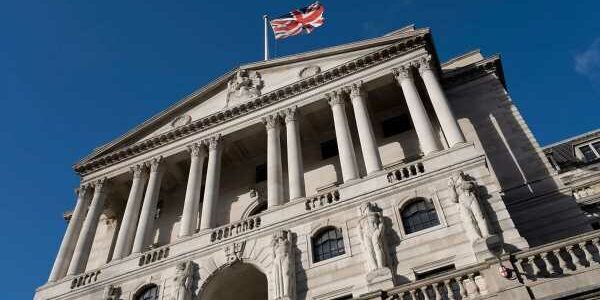
Interest rates horror with possible hike TOMORROW – Bank of England increase looms
Interest rates: Expert advises on savings and mortgages
We use your sign-up to provide content in ways you’ve consented to and to improve our understanding of you. This may include adverts from us and 3rd parties based on our understanding. You can unsubscribe at any time. More info
With inflation soaring and growing pressure on the Bank most bets are on for a fourth consecutive hike by the Monetary Policy Committee (MPC), the question remaining however is by how much? So far the Bank has moved in intervals of 25 basis points, having initially taken the base rate from 0.1 percent to 0.25 percent. Subsequent hikes saw this go to 0.5 percent in February and 0.75 percent in March. Ruth Gregory, Senior UK Economist at Capital Economics, said: “A 50 basis point hike is certainly possible and we wouldn’t rule it out.
“Indeed, comments from MPC member Catherine Mann indicate that the latest rises in price/wage expectations have rattled some MPC members.
“In a speech on 21st April, she suggested that policy may need to lean against these expectations with a “front-loaded policy”.”
In February four of the MPC’s nine members, including Ms Mann, voted for a 50 basis point rise with Ms Gregory suggesting several of these might vote this way again.
However she suggested overall the majority were on balance more likely to opt for another 25 basis point increase.


Matthew Ryan, Senior Market Analyst at Ebury, said there was a “non-negligible chance of a 50 basis point increase”, though he also predicted a 0.25 percent increase would be more likely.
He also predicted voting could be more split with “a good chance that at least a couple of MPC members opt to hold rates steady.”
He explained: “Recent communications have been surprisingly dovish, particularly Governor Bailey’s warning over the risk of a UK recession, and we now see a much greater chance that the BoE will undershoot market expectations for hikes this year, rather than exceed them.”
Samuel Tombs, Chief UK Economist at Pantheon Macroeconomics, said: “I wouldn’t completely rule out a 50bp hike but think 25bp is far more likely.”
In addition he predicted the Bank would “double down” on plans for future tightening to be “modest”.

Currently markets are pricing in the base rate reaching 2.5 percent next year while some analysts predict an even higher peak of three percent.
To a large extent this hinges on how much inflation falls back when energy prices eventually fall and how close the Bank is willing to push the UK towards recession.
Marc Cogliatti, Principal for Global Capital Markets at Validus Risk Management, noted: “The MPC face a tricky dilemma.
“With the cost-of-living crisis at the forefront of everyone’s minds, the potential for growth to slow and unemployment to rise remains a significant risk.
“The Bank’s own forecasts have inflation falling back below target three years out and hence we expect the committee to maintain a cautious approach and be wary of tightening too aggressively.”
DON’T MISS:
Russia scrambles as debt deadline looms [ANALYSIS]
Russia faces “complete isolation” with new SWIFT expulsions [LATEST]
Tim Martin blasts “biggest threat” to hospitality [REVEAL]

In the meantime though inflation is predicted to reach record levels with the MPC’s meeting minutes, also published tomorrow, likely to provide a useful clue as to the Bank’s latest forecasts.
Mr Tombs meanwhile predicted the Bank’s forecast for inflation would be revised up to a peak of nine percent with an average rate for the year of eight percent.
He added that signs were already showing of consumers “buckling under the pressure” with retail sales and consumer confidence falling.
Some have argued that such pressure reduced the need for a hard line from the Bank of England as the higher cost of living leads to cooling demand.
Speaking to BBC Radio 4’s Today programme former MPC member Danny Blanchflower said he would vote for a rate cut if he was still on the committee, arguing the Bank would eventually need to do this anyway if it creates a recession.
Source: Read Full Article